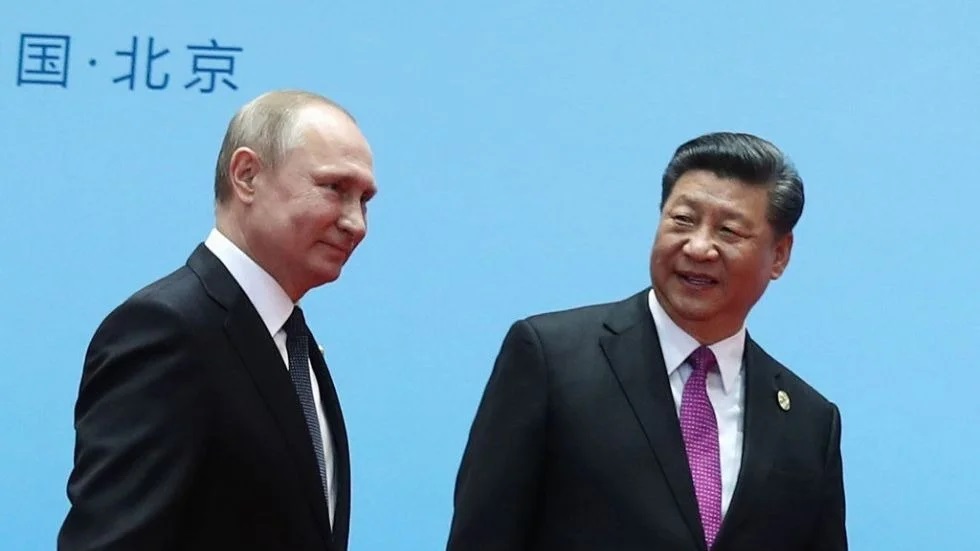
PEJOURNAL – These days and following the imposition of various sanctions by the European Union and the United States of America on Russia under various excuses, there are concerns more than any other time over relations between Moscow and Euro-Atlantic. There is a question that the intensification of tensions would have what impact on the previous cooperation between Kremlin and the West? And more importantly, it would create which challenges for Russia in one hand and the Western coalition in the other?
The new Euro-Atlantic order against Russia
It is not hyperbole if we say the arrival of Joe Biden has created a new order and arrangement in the Euro-Atlantic. In fact, the European Union is an important player in the balance of power between Moscow and Washington and its approach in the convergence or divergence of each of these powers would constitute the basis of the Euro-Atlantic region. For example, during the Trump era, and following differences between Brussels and the White House, the European Union converged with Russia and sought maximum interests with Russia. However, with the arrival of Biden, such tactical convergence was terminated and various sanctions were imposed for various excuses on Moscow by Washington and Brussels.
In the new Euro-Atlantic order, Russia which is not considered the same big threat as the former Soviet Union is considered now as a substantial threat to the United States—a threat which seems has its foundation in the concerns of Democrats in the present structure of power in the US.
In any way, this coalition is trying to stop what it calls Moscow ambitions through various means and is keen on benefiting from a variety of tools. Therefore, this coalition is trying to control Moscow in three fronts:
Economic dimension: sanctions
The United States is well aware that for a country as Russia with such a vast territory of land and large population, economic conditions could become harsh. If the economic pressures coming from the sanctions are not lifted, citizens would face living problems—an issue which could instigate public dissatisfaction and ends in social unrest and protests. The long term goal of this dimension is political regime change.
Political Dimension: Democracy
The concurrency of the return of Navalnyto Moscow with the establishment of the Biden administration in the Washington suggests that Democrats are still trying to loan concrete concepts such as democracy and citizenship rights to exert maximum pressure on the present government in Kremlin—an issue which could complement economic pressures on Russia and instigate protests in the country.
The military dimension: NATO
Even though there were many ifs and buts in connection with the existence of NATO during the Trump tenure, Biden’s speech in the Munich Security Conference suggested that this organization will not only remain the military arm of the Euro-Atlantic, but would attract more attention in space and research issues for Washington and its allies which try to control the present disorders in the global order based in the views of the West.
The combination of the above dimensions indicates that Russia should adopt a different approach and reduce tensions with political renovation on the basis of Western patterns. Of course, as the result of this the regional and trans-regional power of Moscow is diminished; and or with new coalitions it should be seeking to form a new threat balance to control the maximum pressure of the United States. Here it seems that the realistic foreign policy of Moscow despite all the tensions between the European Union and Russia would adopt a positive balance approach towards Brussels.
New coalitions based on the new structure of the balance of threat
China is the main threat to the United States in Asia Pacific area. Russia is considered a potential threat in the Euro-Atlantic and Iran an important factor in the Middle East which plays a significant role in the formation of a new balance of power in the regional and trans-regional order.
Probable negotiations between Tehran and Washington have created many concerns for the Arab countries of the Persian Gulf. On the other hand, Biden indicated in his telephone conversation with the Saudi King that it does not define a special status for Crown Prince bin Salman; therefore, the concern of Arab countries and particularly Saudi Arabia has put them on the track of coalition with Kremlin so as to seek in a win-win game between Moscow and Washington their maximum interests.
Notwithstanding, a review of the foreign policy of Russia indicates that his country would not act anxiously. And therefore, it will not seek coalition with a group of Middle Eastern countries. But Moscow will try to maintain its position as the most central trans-regional power in the Middle East and therefore it would be appropriate for Kremlin to be a key figure in negotiations in Syria, Yemen and Afghanistan and act as a pole of negotiation in the Persian Gulf and especially for Iran and Saudi Arabia through the instrument of the concept of collective security in the Persian Gulf.
In conclusion, it should be noted that even though the concerns of Saudi Arabia over the reduction of tension between Tehran and Washington has pushed it closer to military, spatial and energy cooperation with Moscow, Tehran enjoys the chance of adopting a realistic approach in its foreign policy to benefit maximum gains in interactions between Moscow and Washington. Here, Iran like Russia is grappling with Western sanctions—an issue which would provide important capacities and opportunities for both countries should they move on the track of realism and pragmatism.